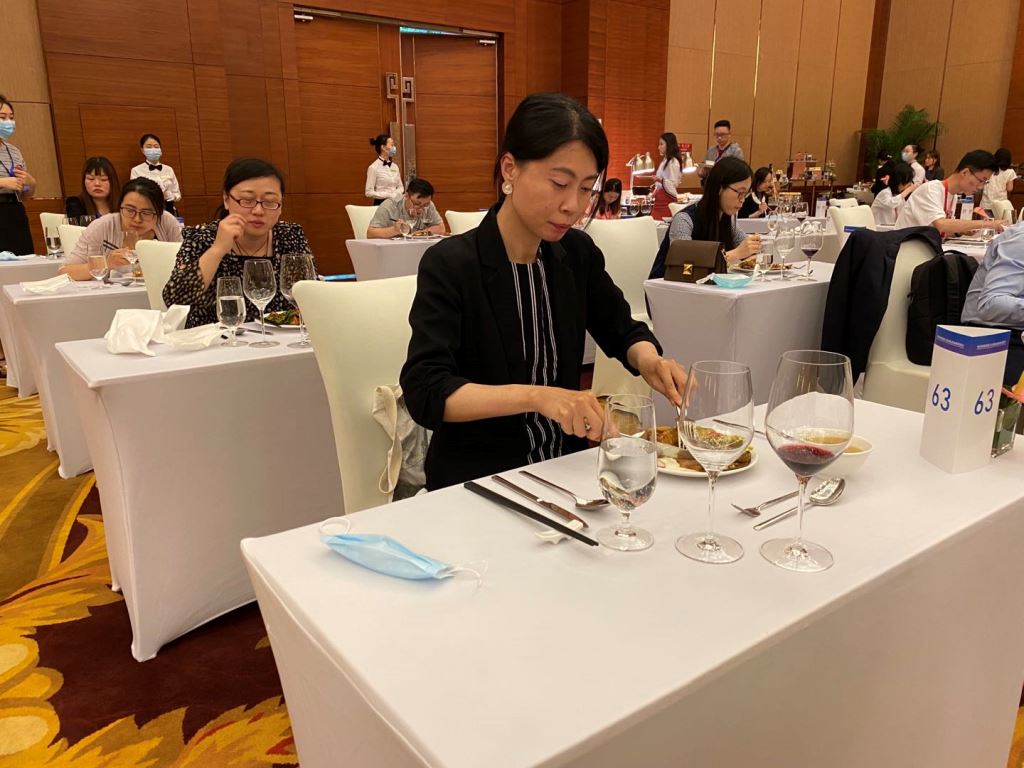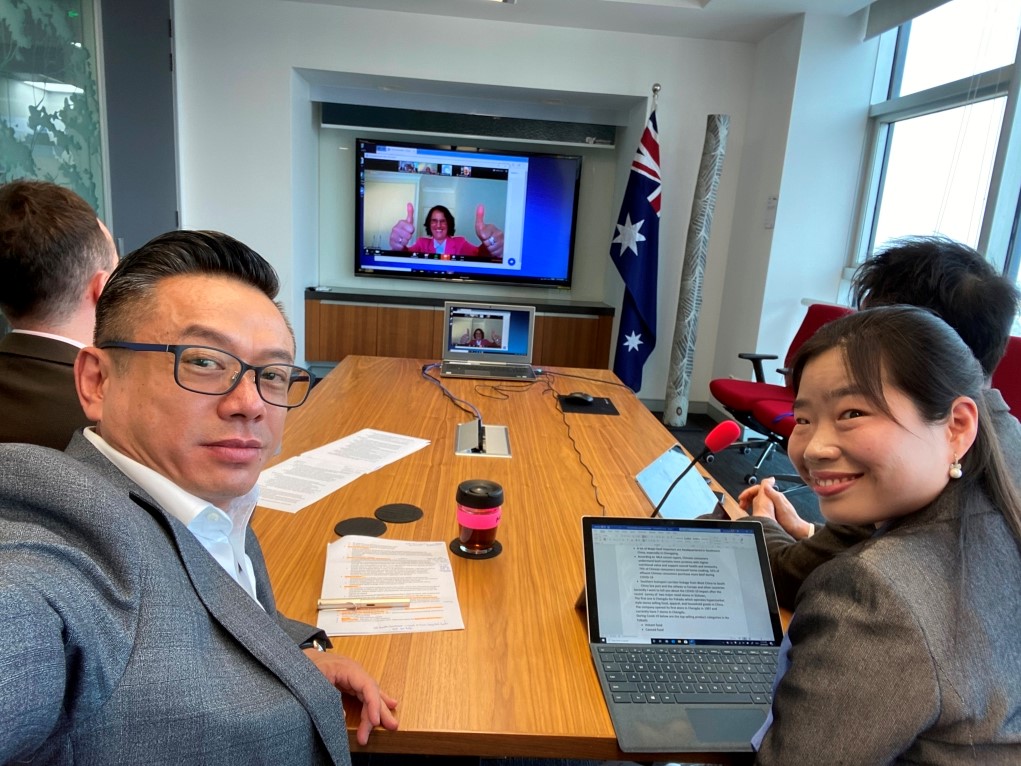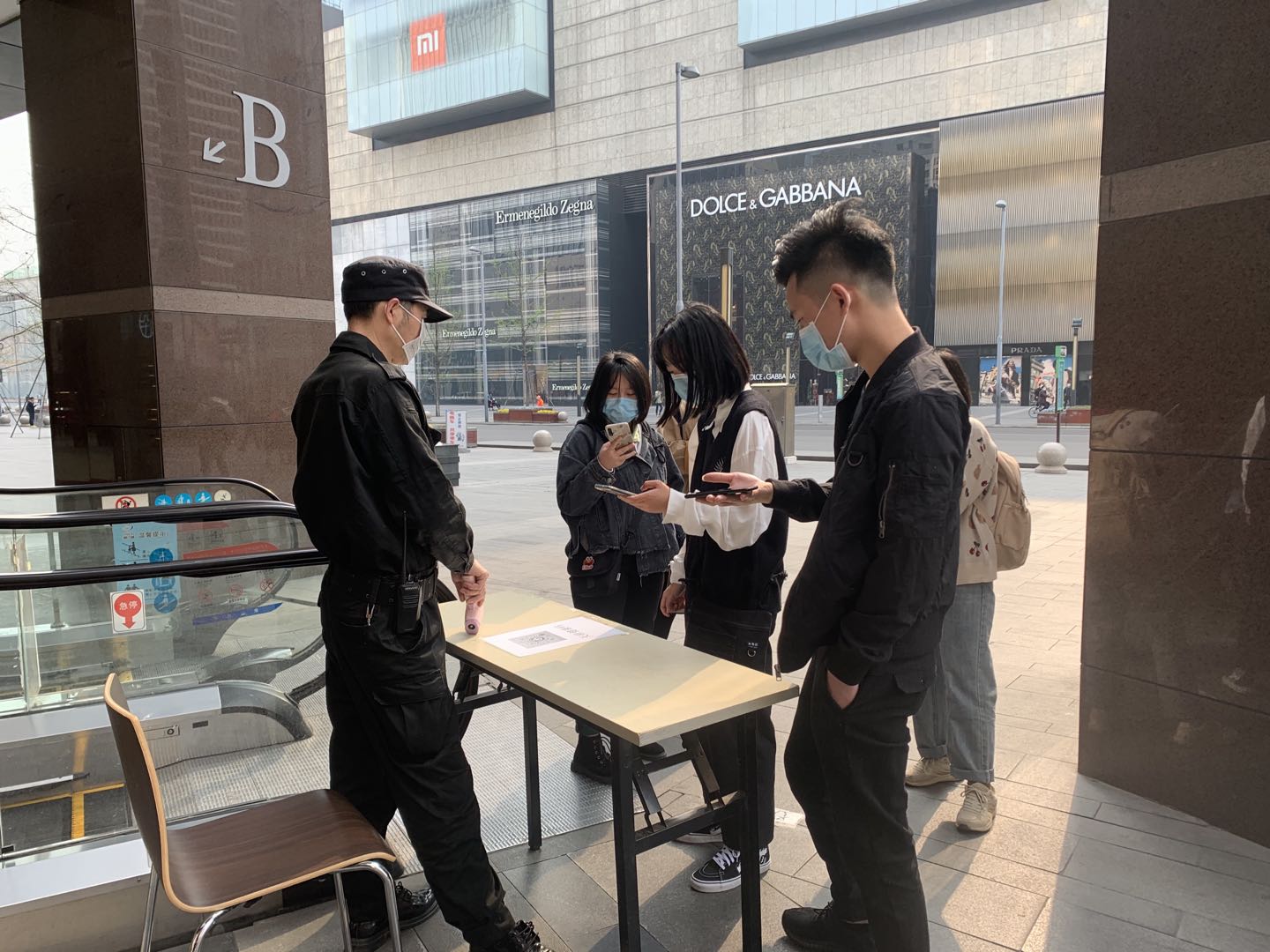Adjusting to the new normal: some reflections
21 May 2020
I’m sure many of you back home are looking forward to social restrictions being eased further so that life could return to some semblance of normality. Given the effectiveness of Australia’s measures to contain the spread of COVID-19, we can be optimistic, although caution is still needed.
But what kind of normal would we return to when this new virus still spreading in many parts of the world, and effective vaccines are still being developed? It’s hard to know for certain, especially as things evolve, often quite quickly.
What kind of new normal?
Our experience in Chengdu gives us a taste of what comes after lockdowns have been lifted. Chengdu has emerged from the social restrictions associated with the coronavirus outbreak. Work has resumed, shopping centres reopened, and schools recommenced. Cafes and restaurants are buzzing again. Tourist destinations are getting more and more packed as domestic tourism rebounds.

A banquet with social distancing characteristics. Credit: DFAT
Yet, there are constant reminders that we live in a COVID-19 world. The most visible expression is the ubiquitous wearing of masks, ready availability of hand disinfectants at shops and restaurants, and increasing insistence by premises to show your health rating on various mobile phone apps before entering. At workplaces, more people continue to work from home, use video-conferencing and travel a lot less than previously, leading to changes to work practices and behaviour.

Video conference with state offices. Credit: DFAT
It has taken time for all our staff to feel confident that not only the workplace, but also the daily commute to and from work, are safe. We’ve been at work throughout the worst parts of the coronavirus outbreak, a job made tougher as our families have been relocated to Australia since January.
Be patient and understanding
What I’ve experienced is that the road towards normality isn’t linear, nothing like the “snapback” or “rebound” that many expected. We have all been back in the office but it doesn’t mean business as usual. With business promotion activities cancelled or postponed, our stakeholders unable to collaborate meaningfully with us, and international travel halted, we often feel frustrated and unfulfilled. Things appear to be in limbo for a prolonged period.
That’s because we had been running to a well-oiled and efficient routine for so long that when we’re faced with an unprecedented circumstances, it takes time and effort to adapt effectively. After the initial adrenaline rush of helping Australians return home in the first few weeks of the epidemic, we turned to planning a new schedule, reassessing priorities, planning for a recovery, all while looking after our colleagues’ physical and mental health.
Focus on what you can control
In these uncertain situations, flexibility and adaptability are key to coping so that we remain motivated and engaged. As our DFAT Staff Counsellor Hamida Nunney tells us, it is important to recognise that we are still in a period of tremendous change, which we are still managing. In this situation, it’s important to focus on matters we can control and let go of things out of our control. With this in mind, I’ve learnt that strengthening the supportive and healthy environment for my staff as they return to the office after working from home has been particularly helpful. It contributes to a sense of camaraderie, cohesion and shared purpose.

Showing a health app before entering a building. Credit: DFAT
Look after each other
Staying closely connected with our clients, stakeholders, colleagues, friends and family has helped me put things in perspective, bounce off ideas and feel that we’re meeting challenges together. As I’ve noted in a previous blog (here), reaching out is not only useful but nourishing to the soul. It is an important part of self-care and mental resilience, alongside regular exercise and time to reflect.
Recalibrate
For us at the Consulate-General, we have used this period to reprioritise and recalibrate our forward strategy, so that we’re ready when new international trade and investment activity is ready to take place again. In order to keep pace without the pressure of external deadlines, we make to-do lists, and schedule our tasks accordingly. Breaking our work into little steps helps with the sense of momentum.
Visualise a future you want
Finally, I find that visualising what we’d like to achieve has been helpful. When our screens and devices are saturated with coronavirus news, it helps to imagine scenarios that you’d like to realise, whether they be business outcomes, successful events or stronger relationships.
We live in extraordinary times. Everyone has endured much hardship, with many people experiencing much worse, including loss of their loved ones. It is important to stay positive and focus on affirming behaviour. Together we will get through this.

Social distancing in a lift. Credit: DFAT
Click here to return to the Australian Consul-General's Blog on Southwest China
